10 Years On: Interview With Mafia Director Daniel Vavra
Mafia director discusses Grand Theft Auto and computer game narratives
With Grand Theft Auto 5 only months away now, Mafia director Daniel Vavra discusses open-world crime games and the influence his 10-year-old game has had.

Computer games have close ties to organised crime. Not in a Frank Sinatra, Jimmy Hoffa kind of way but games regularly draw on gangsters and the criminal underworld for source material.
Take GTA. Its 15-year-old brand of raucous violence and bumbling crooks has made it one of the most popular game franchises in the world. Then you have Saints Row, Sleeping Dogs, Kane and Lynch, and dozens of others, all plunging into the criminal underworld in search of subject matter.
But crime sims are growing up. Far and away from the top-down, slapstick violence of the original Grand Theft Auto, today's open-world gangster games are sprawling 3D things with narrative pretensions. They're getting grittier, too; Saints Row is still as silly as they come, but GTA is becoming sombre, casting troubled losers like Niko Bellic instead of glitzy crims like Tommy Vercetti.
Mafia: The City of Lost Heaven was ahead of the curve. Launching just after GTA III, and just before Vice City, it was a different type of sandbox crime sim, more interested in melodrama and sadness than guns and car chases. The rags to riches to rags again story of an American gangster, Mafia was written by Daniel Vávra, who wanted to make a crime game for adults:
"The original idea was to let people experience what they'd seen in cinemas," says Vávra "and to pay tribute to movies like Goodfellas and The Godfather. But as I dug deeper, I began to see these men as people who are unwilling to obey the rules and would rather set their own. I wanted to tell the full story of a gangster - how somebody joins the Mafia as a young man, rises almost to the top and then falls down to the bottom.
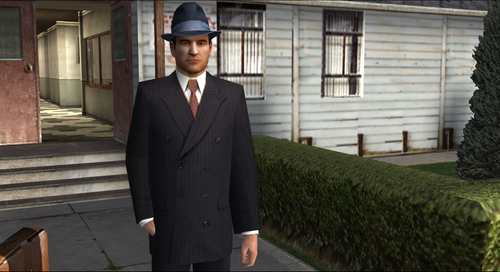
"I knew about GTA; I even played it before it was released. But the only similarities are that both games are open-world and about crime. Everything else is different. GTA evolved from a great and funny 2D game and kept that arcade over-the-top aspect; I wanted our game to be serious and to tell a story for adults."
Rich drama
Set during the 1930s, Mafia follows Tommy Angelo, a deadbeat cab driver who gets caught up with the mob. An enforcer for the Salieri family, his time is split between bumping off rival crooks and running bootleg liquor. But Tommy is more than just a gangster; he also has a wife, Sarah and two pals, Paulie and Sam. Unlike the GTAs of the time, Mafia let you enjoy some downtime with your character - Vávra wanted to create a richer drama.
"I'm really proud of giving players things to do that they didn't usually do in games," says Vávra. "I'm proud of the moments in Mafia without violence, like your date with Sarah, or when you're loading a truck with boxes, or preparing things for a bank robbery.
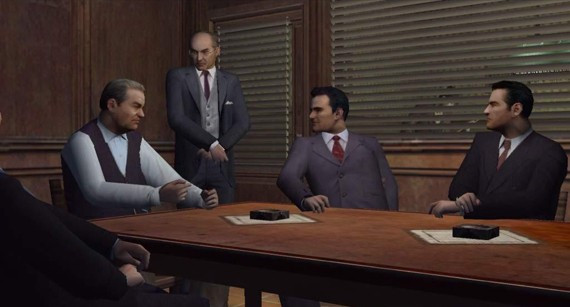
"I tried to mix action, drama and humour as in real life. It was risky; the game was very different than anything else out there and a lot of people had worries if it would work."
It's exactly that mix of drama and action that set Mafia apart from GTA in 2002, and what keeps it looking fresh 10 years later. It's an overwhelmingly sad game, where killing has consequences and everyone dies at the end.
For what is essentially an action game, the story throws some real gut punches. Take the hotel level, which comes about midway through. You're sent to kill this young prostitute who's been talking too much, but Tommy won't go through with it and she lives. Later, though, you find out she was murdered anyway; the Salieris just sent someone else to kill her.
A small conceit, but for 2002 - for today, even - a brave one. Games love clean cut action heroes. For Tommy's holier-than-thou morality to come to nothing, it was a sideways move on Vávra's behalf. After GTA III, Mafia's story wrong-footed players; where Claude Speed runs amok and gets off scot-free, Tommy tries his best and ends up getting killed.
Melancholy
There's a melancholy running through Mafia. It's a game where violence, action and inaction have consequences - a wonderful scene where Tommy sees the funeral of one of his victims testament to Mafia's sad tone. Vávra wanted his story to have more purpose:
"I dont want to mentor anyone," he explains "but it seems a lot of crime games are missing the point. All they are trying to be is the ultimate sandbox with the ultimate possibilities; they don't have any soul, purpose or meaning.
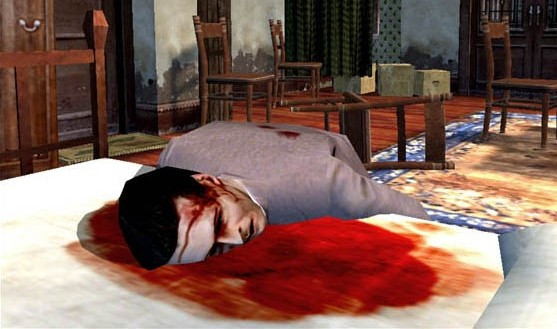
"Developers spend an insane effort creating detailed worlds, but then they fill them with clichés, crappy stories; boring macho characters and cheap tricks...we wanted players to taste the cruelty of the life Tommy had chosen."
Mafia plays at a slower pace to Grand Theft Auto. The entire first half of missions is usually spent building up to a gunfight or car chase, and even when the action erupts, it's on a much smaller scale:
"There's a lot of violence in Mafia," says Vávra "but we tried to keep the body-count as low as possible. The amount of enemies in each level is very low compared to other, similar games and the aim was to have quality instead of quantity."
"We wanted to make sure there was always a reason they were there. If more enemies arrive in the middle of a shootout it's because somebody called them by phone. They're never just waiting for you for no reason."
Plausibility
Plausibility is important in Mafia. Although Vávra admits there are "plenty of cheesy moments", keeping the enemy count low gives the violence more weight. Grand theft Auto isn't interested in that kind of thing, and has always been better for it; it's a knockabout, sandbox caper that wants you to have fun. But Mafia is much more solemn, and by putting five guys in front of you instead of twenty, it makes sure that every kill feels like it means something.
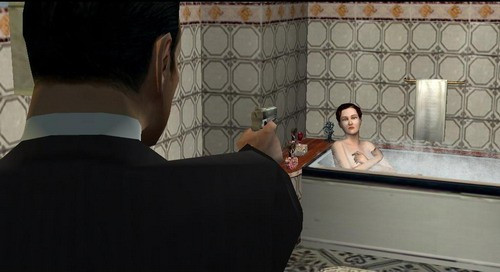
The city plays a big role in that. Not exactly an open-world, Lost Heaven is a mish-mash of the 1930's American coast, incorporating parts of Chicago and San Francisco. It gives Mafia's tragedy a placeless, ubiquitous quality, as well as forming the setting for the game's action set-pieces. Vávra wanted to lead players around Lost Heaven, rather than give them total freedom:
"We wanted to set the story in a typical 1930s East Coast town but keep it fictional at the same time because replicating a real city would be counterproductive.
"It's not a true sandbox game...There aren't many toys to play with. We wanted the player to live the life of a gangster and the city is important part of that - it's your territory and most of the story happens there. But it was also important to not be a simulator. Lost Heaven is more like the backdrop, the scene for the story. We wanted to concentrate focus on this one important story rather than dozens of other, unimportant events."
Lost Heaven
Not the happening playground of most crime games, Lost Heaven has a ghostly quality to it. Old Django Reinhardt records crackle over the soundtrack, and the streets are dark and empty. It's fittingly built on the sea; with waves crashing against the Lost Heaven flood walls, there's a constant sense of time passing in Mafia, a kind of wistfulness to the whole game.
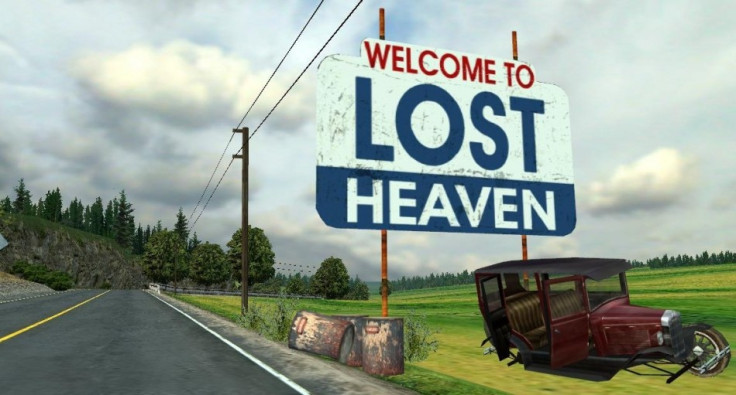
It's a game set in a municipal photo album; the old timey look and sprawling timeline add to Mafia's prevailing melancholy.
That consistency of tone is Mafia's greatest achievement. The steady pace of gameplay, the morbid conclusion to the story and the dreary, timeless feel of Lost Heaven itself culminate in a game that's sad, and nuanced.
Ten years on...
Ten years since it hit shelves, Mafia stands out as a different breed of crime sim. It's fitting that it launched on the heels of Grand Theft Auto III, which would go on to form the basis of open-world games for years - Mafia represents the other way crime games could have gone if writing and drama had come before freedom and silliness.
Now, a decade later, it feels like gangster games are circling back round to Mafia, with GTA IV taking more of its inspiration from Once Upon A Time in America than from Scarface. Niko Bellic's story is eerily similar to Tommy's; despite their best efforts and comparatively good nature, both men get chewed up by the world they belong to.
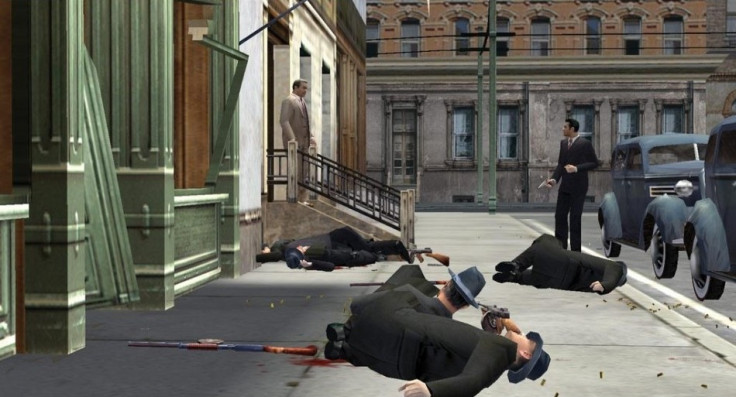
And that's Mafia's contribution to the crime sim. It was one of the first games to punish characters for their bad decisions, and confront players with the consequences of their actions. Before Call of Duty, it killed player characters; before GTA IV, it portrayed organised crime in an unglamorous light:
"I made a lot of mistakes with Mafia," admits Daniel Vávra. "The story could have been structured better, the city could have looked a bit different and I'd definitely want to change the beginning of the game - there's way too much driving in the first few missions.
"I had zero experience at the time, but I wanted to create something that no-one else was doing. It was that absence of anything like Mafia that really motivated me. I was really proud to finish it and even more proud that the final product was almost identical to the original vision.
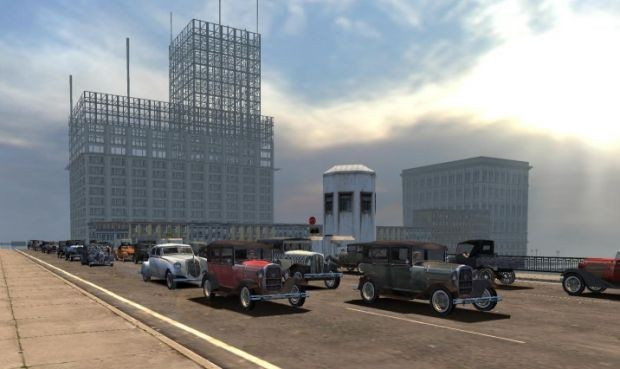
"Even now, ten years later, I still receive emails from people who have finished Mafia a dozen times and love it. It's as if it really had a soul. I'm very grateful for that."
© Copyright IBTimes 2025. All rights reserved.






















